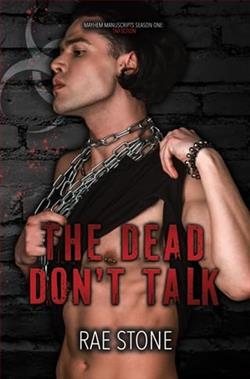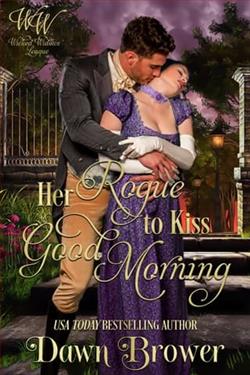Page 68 of The Pillars of the Earth
Fifteen or twenty of the earl’s men stood at the second gatehouse, ready to defend the upper compound. They parted to let Tom and the earl through. As their ranks closed again, Tom heard hooves hammering on the wooden bridge behind him. The defenders had no chance now. At the back of his mind Tom realized that this had been a cleverly planned and perfectly executed raid. But his main thought was fear for Ellen and the children. A hundred bloodthirsty armed men were about to burst in on them. He ran across the upper compound to the keep.
Halfway up the wooden steps leading to the great hall he glanced back. The defenders of the second gatehouse were overcome almost immediately by the charging horsemen. Earl Bartholomew was on the steps behind Tom. There was just time for them both to get into the keep and lift the staircase inside. Tom ran the rest of the way up the steps and leaped into the hall—and then he saw that the attackers had been cleverer yet.
The attackers’ advance party, who had wrecked the gates, and cut the rope of the drawbridge, and set fire to the stables, had performed one more task: they had come to the keep and ambushed all who took refuge there.
They were now standing just inside the great hall, four grimfaced men in chain mail. All around them were the bleeding bodies of dead and wounded knights of the earl’s, who had been slaughtered as they stepped inside. And the leader of the advance party, Tom saw with a shock, was William Hamleigh.
Tom stared, stunned by surprise. William’s eyes were wide with bloodlust. Tom thought William was going to kill him, but before he had time to be scared, one of William’s henchmen seized Tom’s arm, pulled him inside and shoved him out of the way.
So it was the Hamleighs who were attacking Earl Bartholomew’s castle. But why?
All the servants and children were in a frightened huddle on the far side of the hall. Only the armed men were being killed, then. Tom scanned the faces in the hall, and, to his overwhelming relief and gratitude, he saw Alfred, Martha, Ellen and Jack, all in a group, looking terrified but alive and apparently unhurt.
Before he could go to them a fight started in the doorway. Earl Bartholomew and two knights charged in and were ambushed by the waiting Hamleigh knights. One of the earl’s men was struck down immediately, but the other protected the earl with his raised sword. Several more of Bartholomew’s knights came in behind the earl, and suddenly there was a tremendous skirmish at close quarters, with knives and fists being used because there was no room to deploy a long sword. For a moment it looked as if the earl’s men would overcome William’s; then some of Bartholomew’s men turned and began to defend themselves from behind: clearly the attacking army had penetrated the upper compound and was now mounting the steps and attacking the keep.
A powerful voice bellowed: “HOLD!”
The men on both sides took defensive positions, and the fighting stopped.
The same voice called: “Bartholomew of Shiring, will you surrender?”
Tom saw the earl turn and look out through the door. Knights stepped aside to get out of his line of vision. “Hamleigh,” the earl murmured in a quietly incredulous tone. Then he raised his voice and said: “Will you leave my family and servants unharmed?”
“Yes.”
“Will you swear it?”
“I swear it, by the cross, if you surrender.”
“I surrender,” said Earl Bartholomew.
There was a great cheer from outside.
Tom turned away. Martha ran across the room to him. He picked her up, then embraced Ellen.
“We’re safe,” Ellen said with tears in her eyes. “All of us—all safe.”
“Safe,” said Tom bitterly, “but destitute again.”
William stopped cheering suddenly. He was the son of Lord Percy, and it was undignified for him to yell and whoop like the men-at-arms. He composed his face in an expression of lordly satisfaction.
They had won. He had carried out the plan, not without some setbacks, but it had worked, and the attack had succeeded largely because of his advance work. He had lost count of the men he had killed and maimed, yet he was unharmed. He was struck by a thought: there was a lot of blood on his face for one who was uninjured. When he wiped it away, more came. It must be his own. He put his hand to his face, then to his head. Some of his hair had gone, and when he touched his scalp it hurt like fire. He had not been wearing a helmet, for that would have looked suspicious. Now that he was aware of the wound it started to hurt. He did not mind. An injury was a badge of courage.
His father came up the steps and confronted Earl Bartholomew in the doorway. Bartholomew held out his sword, hilt first, in a gesture of surrender. Percy took it, and his men cheered again.
As the noise died down William heard Bartholomew say: “Why have you done this?”
Father replied: “You plotted against the king.”
Bartholomew was astonished that Father knew this, and the shock showed on his face. William held his breath, wondering whether Bartholomew, in the despair of defeat, would admit the conspiracy in front of all these people. But he recovered his composure, drew himself upright, and said: “I’ll defend my honor in front of the king, not here.”
Father nodded. “As you wish. Tell your men to lay down their arms and leave the castle.”
The earl murmured a command to his knights, and one by one they approached Father and dropped their swords on the floor in front of him. William enjoyed watching that. Look at them all, humbled before my father, he thought proudly. Father was talking to one of his knights. “Round up the loose horses and put them in the stable. Have some men go around and disarm the dead and wounded.” The weapons and horses of the defeated belonged to the victors, of course: Bartholomew’s knights would disperse unarmed and on foot. The Hamleighs’ men would also empty the castle’s stores. The confiscated horses would be loaded with goods and driven back to Hamleigh, the village from which the family took its name. Father beckoned another knight and said: “Sort out the kitchen staff and have them make dinner. Send the rest of the servants away.” Men were hungry after a battle: now there would be a feast. Earl Bartholomew’s best food and wine would be eaten and drunk here before the army rode home.
A moment later, the knights around Father and Bartholomew divided, making a passage, and Mother swept in.
She looked very small among all the hefty fighting men, but when she unwound the scarf that had covered her face, those who had not seen her before started back, shocked, as people always were, by her disfigurement. She looked at Father. “A great triumph,” she said in a satisfied tone.















